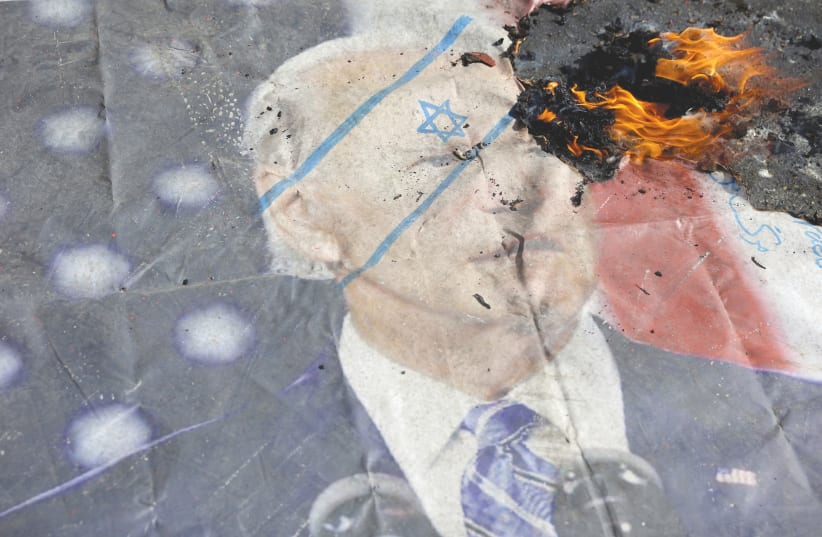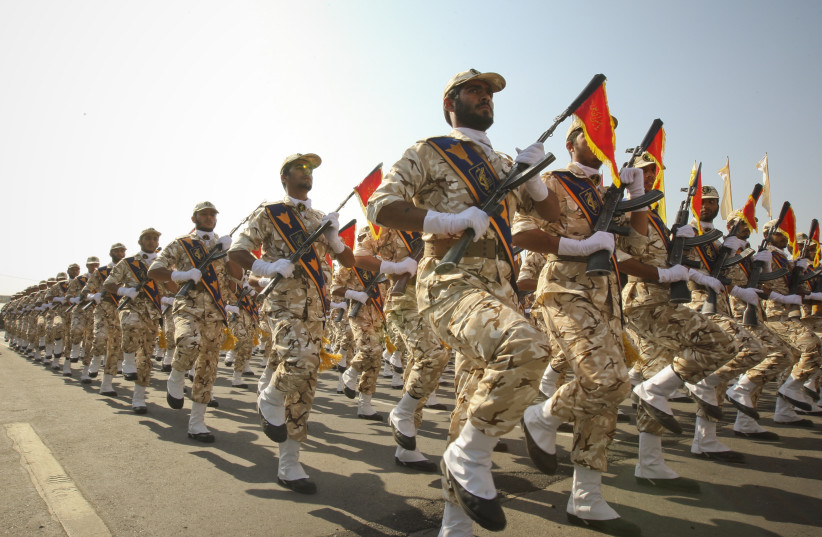The United States and other powers will soon sign an agreement with Iran that, once again, effectively ratifies Iran’s drive to obtain nuclear weapons. The agreement will also remove American sanctions against Iran’s economy, placing about $100 billion, more or less, at the Islamic Republic’s disposal and enabling it to earn more through the sale of oil at today’s exorbitant prices.
Finally, the agreement ends sanctions against Iran’s Revolutionary Guard Corps, effectively legitimizing the world’s largest and most powerful terrorist organization. Iran’s program of spreading its influence throughout the Middle East through terror will receive the United States’ de facto sanction.
The Biden administration continues to say that it will not allow Iran to obtain nuclear weapons. The chance that it means these statements seriously and will act on them is very, very small – far too small to bet our national existence on. If the US actually intended to prevent Iran from obtaining nuclear weapons, it would have to demonstrate the willpower either to impose crushing economic sanctions on Iran or else to actually eliminate the Iranian nuclear program with its own military power.
Its conduct of negotiations with Iran shows that it will make any concession just to get the Islamic Republic’s signature on a piece of paper. The Biden administration’s statements are merely meant to cloak – from Israel’s eyes, from the eyes of the world, perhaps from its own eyes – what the implications of its policy truly are. They are best compared to the pretty flower beds bordering the path to the gas chambers at Treblinka, meant to convince those walking down that path that they were being led only to showers.
The lesson Israel must learn is stark and clear: Don’t walk the path. We have done our best to convince the world that it must act decisively to eliminate the Iranian nuclear threat, but those efforts have failed. Washington has abdicated the field and we are on our own as far as the Iranians are concerned. Nobody will prevent Iran from obtaining nuclear weapons and perhaps using them on us unless we prevent them ourselves, using whatever strategic means prove necessary for the task.
This requires us to embrace a sharp shift in our thinking. Over the past twenty years we have done our utmost to pretend that we are somewhat of a European society (the parallels with Ukraine are intriguing). During this time, fortunately, our economic, military and diplomatic position has strengthened immensely. Nevertheless, our entire policy for the last twenty years has been to avoid conflict and confrontation where at all possible, and to pay an ever higher price in order to bring open military clashes to an end.
This attitude can no longer serve us. Our enemies, too, have gathered strength and will strike us when they are ready. As in 1956 and in 1967, our only viable option is to preempt and strike them first, no matter what other nations may want and no matter what they say. Both the preparation and the fighting will require sacrifice and dedication from Israel’s soldiers and civilians alike.
The agreement with Iran is widely perceived as the US washing its hands of the entire Middle East. Much has been written and will yet be written about how foolish this is from the perspective of US interests, but that is now academic. Across the region, nations are accommodating themselves to this new reality as best they can.
Having decided to boycott Russian oil, Biden phoned the leaders of several Gulf States to urge them to expand their own oil production. They refused to take his call or to join in economic sanctions against Russia. Syria’s dictator, Russia’s puppet Bashar Assad, himself under American sanction, recently made his first trip to the region as a guest of the United Arab Emirates. This disrespect shows how little the region’s nations credit the current US leadership with the ability to either help or harm them.
Throughout a region in turmoil, there is one political and military constant: The threat of Iranian hegemony. To counter this threat requires a focal point, a power with the military strength to face down the Iranian threat and the determination to set policy and lead those who feel threatened. Until now, this was the role of the US, but their leadership – at least until there is a change of sentiment and governance in Washington – is no more. Now, it is Israel that must step up and attempt to fill this role to the best of our ability. That is the most promising path to safety in our new circumstances.
Ancient history records that when the inhabitants of Britain, abandoned by the armies of Rome, faced invasion, they pleaded for the Roman emperor Honorius to defend them (411 CE). Honorius, distracted by wars at home, replied: “Look to your own defenses!”
So must we.
The writer is head of the Department of Policy Research at Kohelet Policy Forum.

